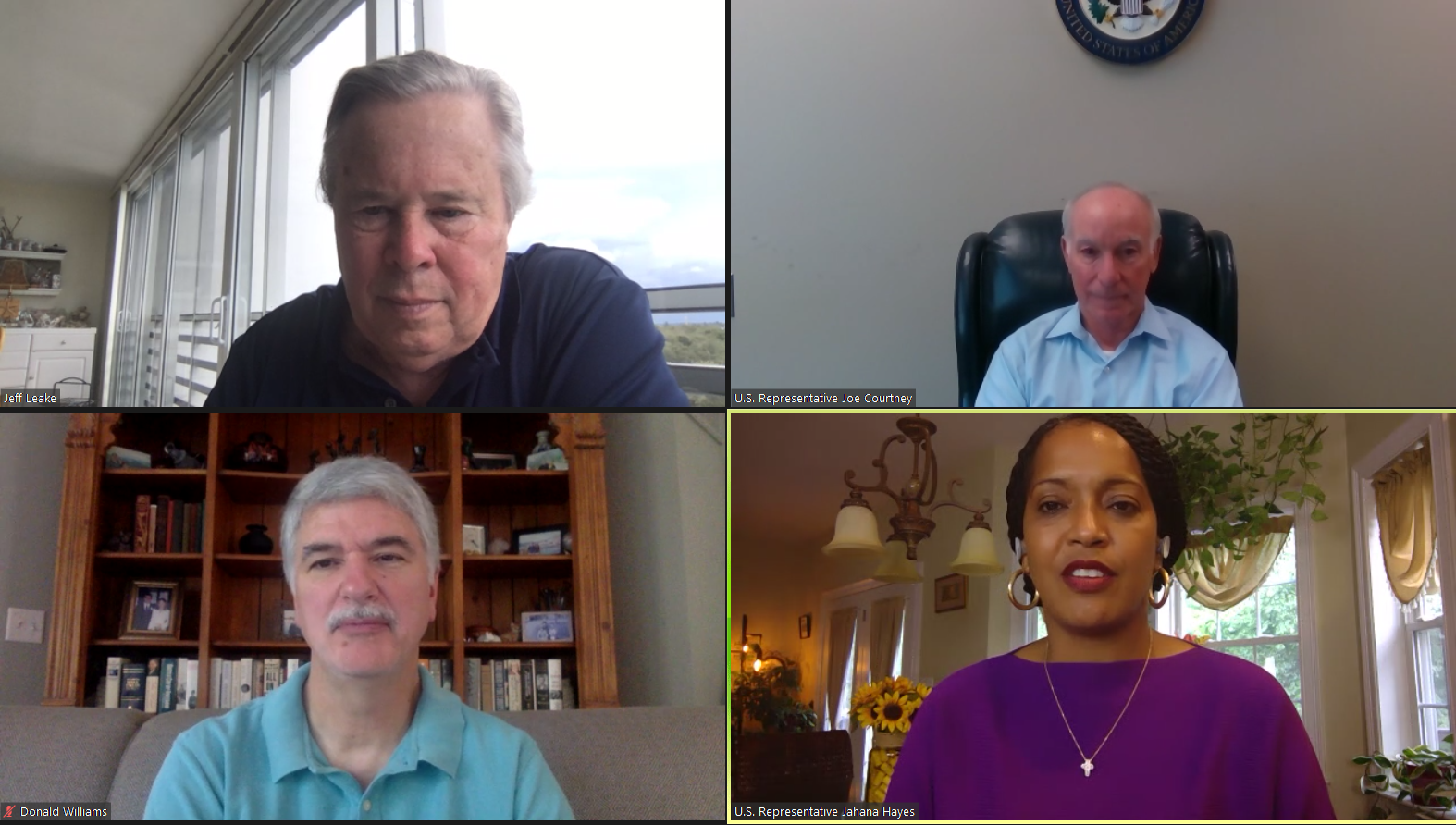2016 National Teacher of the Year Jahana Hayes says that she’s dealt with many challenges since being elected to Congress in 2018, but reopening schools during a pandemic has been the most personal and painful issue she’s had to face.
Hayes joined Connecticut Congressman Joe Courtney for a discussion with CEA members yesterday on reopening schools and the role of the federal government.
Courtney and Hayes both serve on the House Committee on Education and Labor, and Courtney said that having Hayes on that committee has been a significant asset. “She brings her life experience as well as intelligence to our deliberations.”
Since March, when schools across the country closed, Hayes said she has been pushing and asking questions about how students and educators would return to school safely. “The whole conversation about reopening schools doesn’t account for the teacher side of the equation,” Hayes said.
“There is this push to reopen schools at full capacity so the economy can get up and running,” she continued. “Why are schools and teachers being asked to shoulder the full burden of that? Why aren’t employers doing hybrid schedules or offering accommodations for parents?”
“When the initial plan came out in Connecticut to fully reopen schools for in-person learning, one of the loudest voices speaking against that was my colleague Jahana, who understood how unworkable that approach would be,” Courtney said. “We’ve since seen some movement from the state toward something more reasonable.”
“I’ve been unapologetically vocal,” Hayes said. “I am asking the questions and expecting accountability. Everybody wants to reopen schools, but I don’t think our state or our children should be an experiment or Petri dish for that. We need to proceed with caution, and part of that is making sure we have access to all the necessary resources.”
The House passed the HEROES Act in May, which included $58 billion in aid to public schools and $900 billion in funding to state and local governments. The Senate countered with a proposal that would make two-thirds of $70 billion in k-12 funding conditional on whether schools resume in-person learning.
Courtney said that negotiations over federal relief are much more stuck right now than he would have expected at this point. He said the biggest sticking point in negotiations between the House and Senate are proposals for state and local aid, and that education aid is also a big piece of that.
“We’re holding firm right now to try to make sure the number is adequate and without strings attached that would force districts to make bad decisions,” Courtney added.
Courtney said that federal support is crucial as many cities and towns, such as Norwich, which lies in his Congressional District, have had to cut their education budgets. “If you’re social distancing you need more staff not less. How can a city like Norwich cope with coming back with fewer boots on the ground than last spring?”
Courtney said that some of his Congressional colleagues have a, “suck it up, do it, full speed ahead” attitude, which is a recipe for disaster.
Hayes said that she has also been advocating for a massive infrastructure bill that would, among other things, address school ventilation and air quality. She said she has been reminding her colleagues in Congress that whether schools open for full in-person learning, a hybrid model, or remote learning all of these models require additional funds.
“Under a hybrid or remote model, any teacher who doesn’t have a computer should be provided with one as well as with training in order to effectively use programs,” she said. “You cannot have any real discussion about reopening without considering all of these things and the added cost they bring.”
In response to a question from a CEA member about how Connecticut teachers can advocate for more resources for public education, given that Connecticut’s Congressional Delegation is already working hard toward that goal, Hayes said that it’s important for teachers to advocate at every level of government.
“Representation matters,” she said. “We need people who believe that public education matters at every level, from town boards of education to the state legislature.”
Hayes added that the country also needs a new secretary of education who believes in public education and will support teachers.
As Congress held hearings this spring, Hayes said that every other department head came to Congress asking for support to reopen their sector of the economy. “DeVos has not once come to Congress to advocate for reopening schools.”







